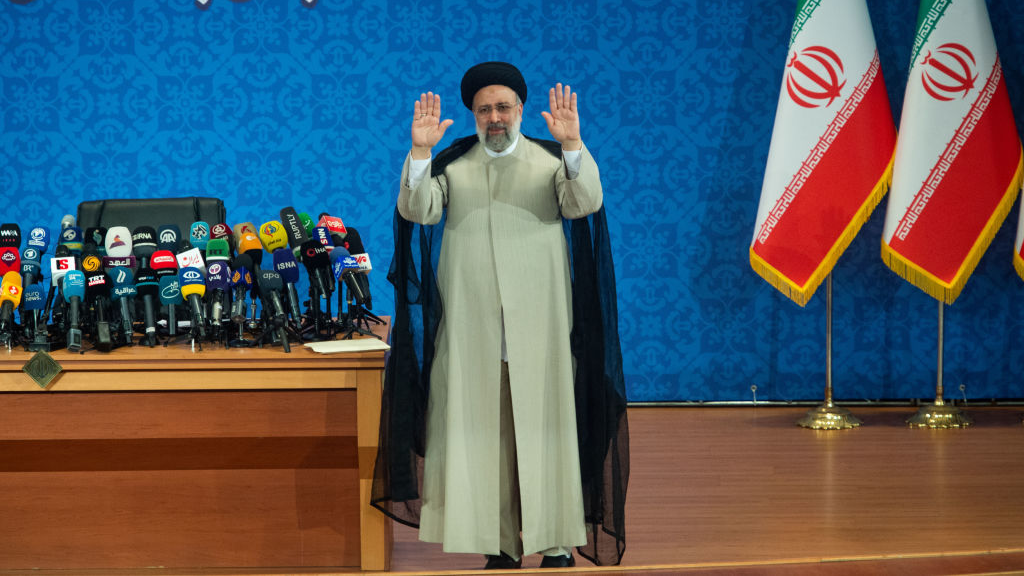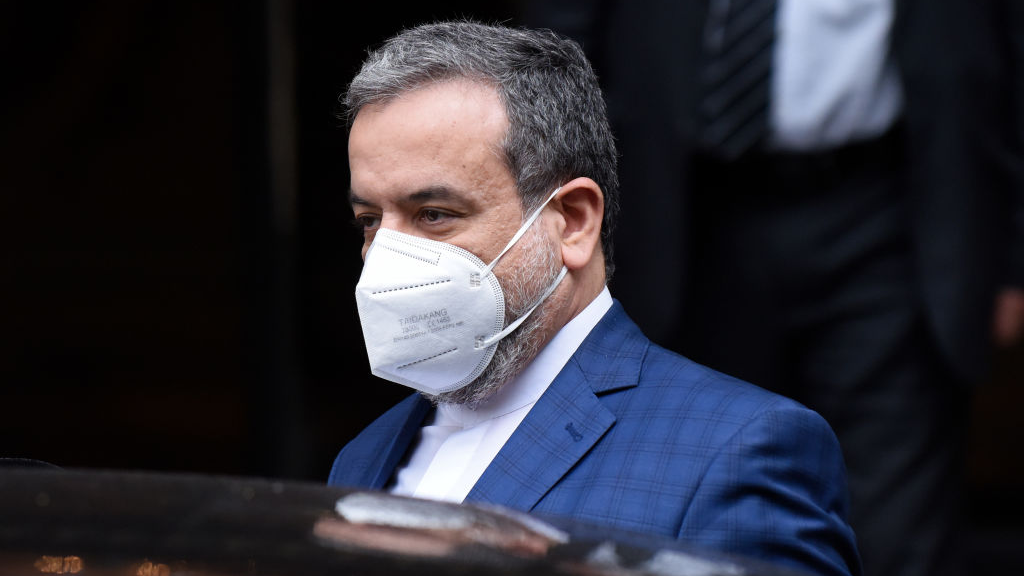
Ebrahim Raisi, Iran's president, waves to the media during his first news conference following his victory in the presidential election in Tehran, Iran, June 21, 2021. /Getty
Ebrahim Raisi, Iran's president, waves to the media during his first news conference following his victory in the presidential election in Tehran, Iran, June 21, 2021. /Getty
Editor's note: Hamzah Rifaat Hussain is a former visiting fellow at the Stimson Center in Washington and serves as an assistant researcher at the Islamabad Policy Research Institute (IPRI) in Pakistan. The article reflects the author's opinions and not necessarily the views of CGTN.
When Iranian analyst Foad Izadi claimed last week that Washington D.C. is trying to mold the Joint Comprehensive Plan of Action (JCPOA) as an agreement that goes beyond mere nuclear issues and toward regional ones, such as Iran's missile program, it marked a shift in tone in Iran regarding the future of U.S. engagement with the deal itself, which has otherwise been held hostage by geopolitics that has dealt a blow to multilateralism. Yet takes from domestic hardliners reveal a criminally bare story despite well-founded skepticism. In all honesty, the hawkish approach adopted toward Iran by the U.S. is a direct product of domestic turmoil in American politics.
While true that the Biden administration has approached the Iranian case with the aim of allaying domestic criticism, which has resulted in unwarranted teetering on the JCPOA deal, the seeds of sowing discord with Iran, which include aerial strikes and choking off the national economy, were subject to electoral engineering by the Trump administration. These revelations were made by Chairman Joint Chiefs of Staff General Mark Milley, who in a Sunday afternoon meeting at the White House with Biden's predecessor in January engaged in a concerted effort to thwart attempts by the latter to embark on a military conflict with Tehran. More alarmingly was how President Trump leveraged Washington's Iran policy to avert the 2020 election results, which included a horrendous attack on Capitol Hill from the American far right as a travesty for American democracy. These admissions confirm the use of what General Milley terms as the usage of heightened rhetoric and the military on the streets of America to prevent the peaceful transfer of power. The absence thereof could have resulted in a different scenario for Iran, regional and international peace.
Championing the cause of war with Iran through sanctions, probable military advances and aerial strikes went hand in hand with election campaigning to placate domestic support bases in the United States. This has meant that compliance with the deal through visionary diplomacy and engaging in meaningful dialogue with Tehran were secondary considerations. This also explains the reckless unilateralism employed by the Trump administration and the domestic trumpeting of the "Big Lie" over the election results of 2020 with the gains from mending ties with Tehran being overshadowed by Republican gambits.

Iranian Deputy Foreign Minister Abbas Araghchi leaves the Grand Hotel on the day the JCPOA Iran nuclear talks are to resume in Vienna, Austria, May 7, 2021. /Getty
Iranian Deputy Foreign Minister Abbas Araghchi leaves the Grand Hotel on the day the JCPOA Iran nuclear talks are to resume in Vienna, Austria, May 7, 2021. /Getty
Such accounts of political bickering between Milley and Trump are corroborated by sources cited by authors publishing a book on the Trump presidency next year, which includes Michael Bendel of the Wall Street Journal and Carol Leonnig of the Washington Post.
All this raises the central question haunting the JCPOA negotiations today. Should curbs on states pursuing nuclear weapons be subject to the internal whims and wishes of respective American administrations with the nonproliferation government being weakened instead of strengthened?
With Trump advisers pushing for military action against Iran, the toxic link between electoral politics and foreign policy, which affects the sanctity and credibility of the JCPOA, is evident. Note that the costs of waging an outright war with Iran beyond the assassination of the Iranian Revolutionary Guard Corps and Quds commander Qasem Soleimani would have had domestic repercussions for the Republican Party's credibility and cosmetic calls for non-intervention, which would weaken the veracity of troop withdrawal calls and de-escalation. Beyond this variable, which is grounded in realism, it was possible that the deal would have never been resuscitated, and a military strike on Iran to gain political mileage been the preferred modus operandi during the dying stages of the Trump era.
Sadly, the Biden administration has so far done little to reverse these harrowing realities, which continue to have a toll on Iranian domestic politics and the future of multilateral engagement with Tehran. Air strikes on Iranian militias in Iraq despite their controversial orientation in Iraq and Syria have only served to cement further skepticism of Washington's intentions as disproportionate attention is directed at Biden delivering on his electoral pledge on the JCPOA. The results have so far not been meaningful despite calls from stakeholders such as Russia and China for the U.S. to adopt a more concessionary approach and diffuse this crisis with pragmatism.
Pragmatism on Iran beyond domestic politics was missing in the Trump era. The Biden administration should refrain from adopting a similar approach.
(If you want to contribute and have specific expertise, please contact us at opinions@cgtn.com.)

